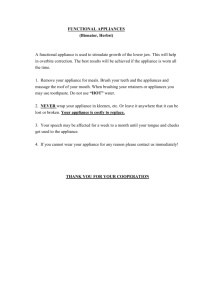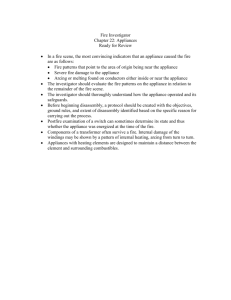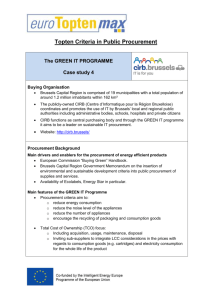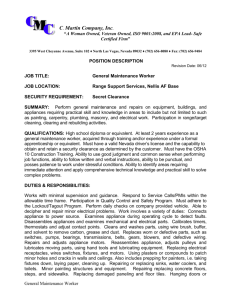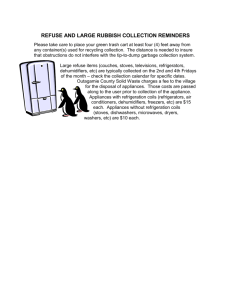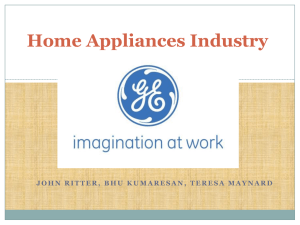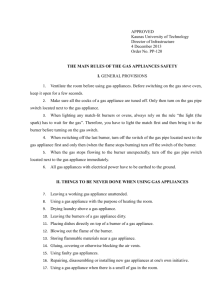B017
advertisement
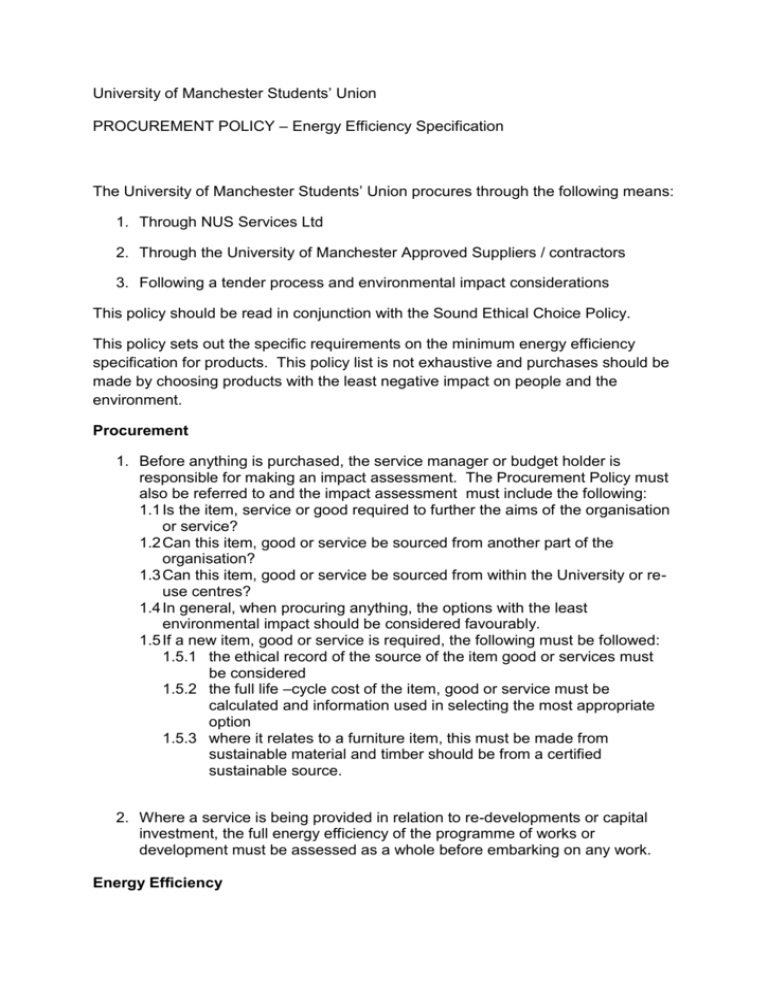
University of Manchester Students’ Union PROCUREMENT POLICY – Energy Efficiency Specification The University of Manchester Students’ Union procures through the following means: 1. Through NUS Services Ltd 2. Through the University of Manchester Approved Suppliers / contractors 3. Following a tender process and environmental impact considerations This policy should be read in conjunction with the Sound Ethical Choice Policy. This policy sets out the specific requirements on the minimum energy efficiency specification for products. This policy list is not exhaustive and purchases should be made by choosing products with the least negative impact on people and the environment. Procurement 1. Before anything is purchased, the service manager or budget holder is responsible for making an impact assessment. The Procurement Policy must also be referred to and the impact assessment must include the following: 1.1 Is the item, service or good required to further the aims of the organisation or service? 1.2 Can this item, good or service be sourced from another part of the organisation? 1.3 Can this item, good or service be sourced from within the University or reuse centres? 1.4 In general, when procuring anything, the options with the least environmental impact should be considered favourably. 1.5 If a new item, good or service is required, the following must be followed: 1.5.1 the ethical record of the source of the item good or services must be considered 1.5.2 the full life –cycle cost of the item, good or service must be calculated and information used in selecting the most appropriate option 1.5.3 where it relates to a furniture item, this must be made from sustainable material and timber should be from a certified sustainable source. 2. Where a service is being provided in relation to re-developments or capital investment, the full energy efficiency of the programme of works or development must be assessed as a whole before embarking on any work. Energy Efficiency 3. The EU directive 92/75/EC established an energy consumption labelling scheme. The result of this and several other directives is that most white goods, light bulb packaging and cars must have an EU Energy Label clearly displayed when offered for sale or rent. The energy efficiency of an appliance is rated in terms of a set of energy efficiency classes from A to G on the label, A being the most energy efficient, G the least efficient. The labels also give other useful information to a customer to enable comparison between various models. The information should also be given in catalogues and included by internet retailers on their websites. A+ and A++ grades are also used for refrigeration products. 3.1 Each product has an energy label, separated into at least four categories: The appliance's details: according to each appliance, specific details, of the model and its materials Energy class: a colour code associated to a letter (from A to G) that gives an idea of the appliance's electrical consumption Consumption, efficiency, capacity, etc.: this section gives information according to appliance type Noise: the noise emitted by the appliance is described in decibels 3.2 Where the University of Manchester Students’ Union is responsible (as opposed to the institution) for procurement of electrical appliances/equipment/vehicles, purchases should be made with consideration of the item’s energy efficiency. Ideally the most energy efficient option should be chosen, but this must be balanced against price. The following document provides guidelines to determining a product’s energy efficiency. 3.2.1 Refrigeration equipment When purchasing appliances for refrigeration (specifically fridges and freezers), only those with an energy efficiency class of ‘A’ or above (A+ or A++) should be considered. 3.2.2 Dishwashers and kitchen equipment In this category, appliances should have a minimum energy efficiency class of ‘B’ or above. 3.2.3 Small appliances – kettles, tea urns etc In this category, products may not have a specific energy efficiency class. Comparisons and recommendations may be found on the Which website (www.which.co.uk)i and this method may be used to determine the most efficient option to buy. If a decision cannot be made based on information from this site, further research should be made and evidence provided to support the final procurement decision. 3.2.4 Vehicles When purchasing a new vehicle for the union (car or minibus) the following website can be used for advice on selecting the most efficient model for the available budget: (http://www.energysavingtrust.org.uk) If necessary, further research may be carried out and evidence must be provided to support any procurement decision. 4. In conclusion, for any procurement of electrical appliances/equipment/vehicles by the University of Manchester Students’ Union, the most energy efficient model within the available budget should always be purchased and the decision supported by evidence. i Log on details for which.co.uk can be obtained through the Union Director or Operations Director
